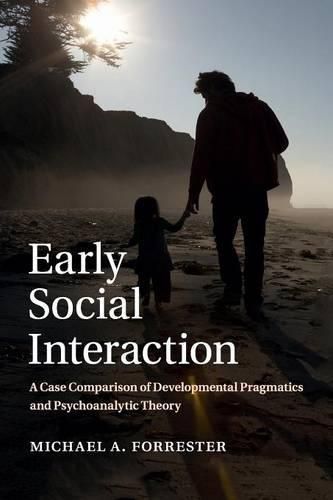Readings Newsletter
Become a Readings Member to make your shopping experience even easier.
Sign in or sign up for free!
You’re not far away from qualifying for FREE standard shipping within Australia
You’ve qualified for FREE standard shipping within Australia
The cart is loading…






When a young child begins to engage in everyday interaction, she has to acquire competencies that allow her to be oriented to the conventions that inform talk-in-interaction and, at the same time, deal with emotional or affective dimensions of experience. The theoretical positions associated with these domains - social-action and emotion - provide very different accounts of human development and this book examines why this is the case. Through a longitudinal video-recorded study of one child learning how to talk, Michael A. Forrester develops proposals that rest upon a comparison of two perspectives on everyday parent-child interaction taken from the same data corpus - one informed by conversation analysis and ethnomethodology, the other by psychoanalytic developmental psychology. Ultimately, what is significant for attaining membership within any culture is gradually being able to display an orientation towards both domains - doing and feeling, or social-action and affect.
$9.00 standard shipping within Australia
FREE standard shipping within Australia for orders over $100.00
Express & International shipping calculated at checkout
When a young child begins to engage in everyday interaction, she has to acquire competencies that allow her to be oriented to the conventions that inform talk-in-interaction and, at the same time, deal with emotional or affective dimensions of experience. The theoretical positions associated with these domains - social-action and emotion - provide very different accounts of human development and this book examines why this is the case. Through a longitudinal video-recorded study of one child learning how to talk, Michael A. Forrester develops proposals that rest upon a comparison of two perspectives on everyday parent-child interaction taken from the same data corpus - one informed by conversation analysis and ethnomethodology, the other by psychoanalytic developmental psychology. Ultimately, what is significant for attaining membership within any culture is gradually being able to display an orientation towards both domains - doing and feeling, or social-action and affect.